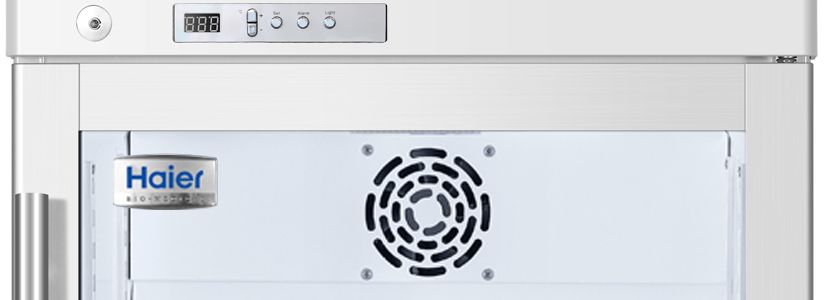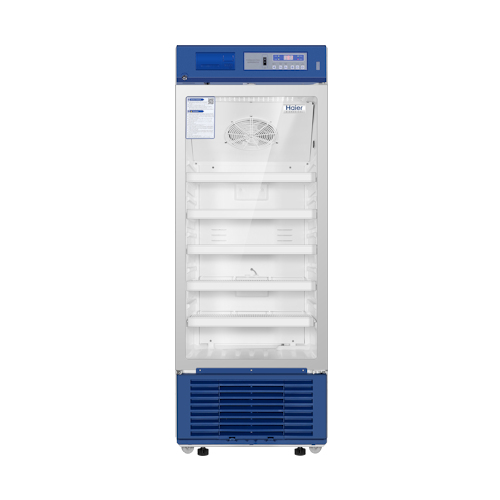The biggest drawback with your fridge at home is that is
not very accurate and not very stable and not very
consistent. The evaporator is in the storage compartment.
When the compressor is running the air cooled by the
evaporator (the icy panel inside at the back) falls and
starts the cooling of your food at the bottom of the fridge.
There is usually several degrees difference between the
temperature of the food at the top and the bottom. This is
not good enough for a precious cargo such as vaccines and
medicines.
The solution is simple. The evaporator is separated by a
wall and the air is blown over it and into the storage
compartment by a fan. This moves the air quickly in a loop
and steadily cools all of the contents at the same rate.

This picture shows Haier HYC118. Clearly visible is the
digital display and controls at the top and through the
glass door is the fan port. These models often feature a
heated double glazed glass front door which never fogs up.
The advantage is that you can see and identify the article
you are about to remove from the fridge and therefore
minimise the door open time.
To be compliant with the NZ
Ministry of Health cold chain protocol the fridge must
store and allow you to retrieve the daily minimum and
maximum temperature data. It should also preferably keep a
log (which our larger fridges do) and you should have monitoring device,
which of course we can supply.
We can also perform the annual service checks and calibration to satisfy your cold chain requirements.
We can calibrate your freezer and your ULT freezer.
Ideally, your pharmacy fridge should have a insulated door, not ouble glazed glass but the new triple glazed is good. Read why here.

